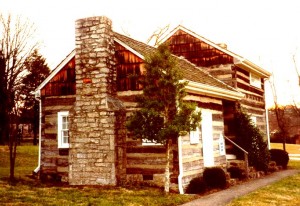I would like all to consider the effects on both our study of history and attempts to preserve it that have been brought about by what “appears” to a very rapid change in technology and its use in business, government, education, and occasionally, even the church. I have, over the years, read many books and attended many seminars on growing the church, defining mission, preserving our past and integrating our past into our present worship. One thing I have often heard, and in fact it was recently reinforced by a statement made by my current pastor at a meeting, is that the church is about 30 years behind when it comes to utilizing technology. I find this to obviously be true in spirit, if not provably so in the numerical value.
The odd thing for me about that statement, is that so many meetings I have attended at the church on all levels (I serve, locally, at conference level and at jurisdictional level) seem to be almost identical to those I attend in my professional organizations, at least with regards to technology. At one meeting of a board of professional archivists, a friend and mentor, Jay, said “Jim is trying to drag us kicking and screaming into the 21st Century.” I responded, “No, I am trying to drag us kicking and screaming into the 20th Century! The 21st would be biting off more than I can chew.”
For those of us involved or interested in the stuff of history within the church, we should remember that it is necessary to at least be aware of the current means by which information is created, stored and accessed if we wish to be able to preserve it, understand it, or use it in our research. As Tennessee Conference Archivist, I regularly explain to people that the information they want for their research does not exist in our collections, at least not in an accessible format. They, in their turn, regularly fail to understand why not. Why did people not save the records in a manner in which they could later be accessed? Why are the records in a form one cannot understand? What does this document mean? (This last usually a question about the group that created the document, the structure of the organization, how it held its meetings, kept its minutes, communicated, etc.) The ability to preserve, interpret and make information available to researchers of the future requires that we have some understanding of the answers to these same questions regarding records created today.
Does your church use PowerPoint, video, recorded audio in its service? Does it have a Website, a listserve, use Twitter, Facebook, or other social media? How do you save e-mail correspondence for future generations? Do you distribute your newsletter by e-mail, put it on the Web, send messages by phone tree? I know that there are those who communicate by Skype, send files via fttp protocols, and create documents collaboratively through online software such as Google Docs (no endorsement should be implied here.) Thank goodness there are people who choose to put their ministries online in podcasts, through Webcasts and on Youtube, where people who would never have otherwise been exposed to them can now be. The question is, will anyone looking back on these days know about it?
Many churches are not interested in the mindset of those who use such media. The mindset is there, however. Although a relative few people have joined our TN Methodist History social network and those who view this blog are not legion, more than half of those who contact me with reference questions expect me to be able to use a digital index to find the records they request and expect me to be able to transfer the desired records into some form that they can readily use with my computer. Easily a third dos not understand why our records are not online and available for them to search for themselves. They do not understand why the records are not available in a way that they desire.
Of course, many churches do not use the new technologies that are available, mistaking them for just tools that someone designed to provide different means of communication where the present ones are just fine, rather than seeing them as new media and tools designed because of the new ways that people choose to communicate and form relationships. If you are with one of these churches, I encourage you to examine some of these new methods and look for ways in which your folk might choose to use them. By that, I don’t just mean look at, for example, Facebook or Second Life, and try to think of how you can effectively use them to spread your message, though that may certainly be a good idea (and one I have advocated elsewhere.) No, I mean also look at them and get a feeling for what they are, so that, should someone else choose to use them, you will be familiar with and to some degree understand them.
As I posted earlier, I was thrilled to have a chance to see a representation of an archival document in Second Life a few weeks back. This may not be the way that relationship and communication will go, but I have little doubt that during my professional life I will have to deal with some type of document that requires my understanding what virtual interactive technology is. I will likely be found wanting, but hope not to be found clueless.
Jim
TN Conf. Archivist
Jim Havron currently serves as archivist of the Tennessee Conference of the United Methodist Church. His education and experience is in history with additional focus on public history, archives and museums, and with research and practice focusing on religious history, oral history, user advocacy and where the craft of history meets technology. He can be reached at archivist@tnumc.org
